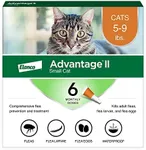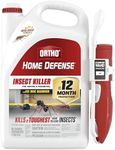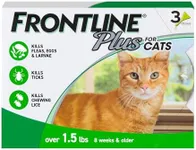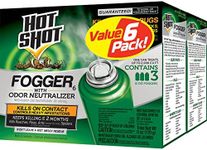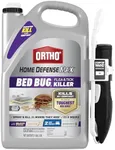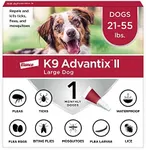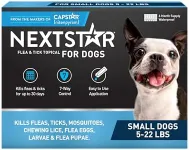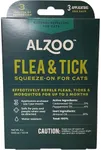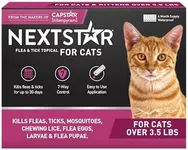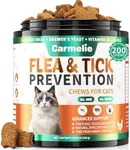Buying Guide for the Best Insecticide For Fleas
Choosing the right insecticide for fleas is crucial to effectively eliminate these pests from your home or pets. Fleas can cause discomfort and health issues for both humans and animals, so it's important to select a product that is both effective and safe. When picking an insecticide, consider the environment where it will be used, the severity of the infestation, and any specific needs or sensitivities of your pets or family members. Here are some key specifications to help you make an informed decision.Active IngredientsThe active ingredients in an insecticide are the chemicals responsible for killing fleas. Common active ingredients include pyrethrins, permethrin, and imidacloprid. Pyrethrins are natural insecticides derived from chrysanthemum flowers and are generally safe for use around pets and humans. Permethrin is a synthetic version of pyrethrins and is often more potent. Imidacloprid is a neonicotinoid that targets the nervous system of fleas. When choosing an insecticide, consider any allergies or sensitivities in your household and opt for an ingredient that is effective yet safe for your environment.
Formulation TypeInsecticides for fleas come in various formulations, including sprays, powders, foggers, and spot-on treatments. Sprays are versatile and can be used on furniture, carpets, and pet bedding. Powders are useful for treating large areas and can be vacuumed up after application. Foggers, or flea bombs, are designed to treat entire rooms but require you to vacate the area during use. Spot-on treatments are applied directly to pets and provide long-lasting protection. Choose a formulation based on the area you need to treat and the convenience of application.
Residual EffectThe residual effect of an insecticide refers to how long it continues to kill fleas after application. Some products offer immediate results but have a short residual effect, while others provide long-term protection. For severe infestations, a product with a longer residual effect may be more effective in preventing re-infestation. If you prefer a quick solution, a product with a shorter residual effect might be sufficient. Consider your specific needs and the level of infestation when deciding on the residual effect.
Safety for Pets and HumansSafety is a critical factor when choosing an insecticide, especially if you have pets or small children. Some insecticides are specifically formulated to be safe for use around pets and humans, while others may require you to keep pets and children away during and after application. Always read the label and follow the manufacturer's instructions to ensure safe use. If you have pets with sensitive skin or health issues, opt for a product that is gentle and specifically designed for use on animals.
Ease of UseThe ease of use of an insecticide can greatly impact your experience and the effectiveness of the treatment. Some products require multiple steps and careful application, while others are straightforward and easy to use. Consider your comfort level with applying the product and the time you have available for treatment. If you prefer a hassle-free option, look for products that are simple to apply and require minimal preparation.

